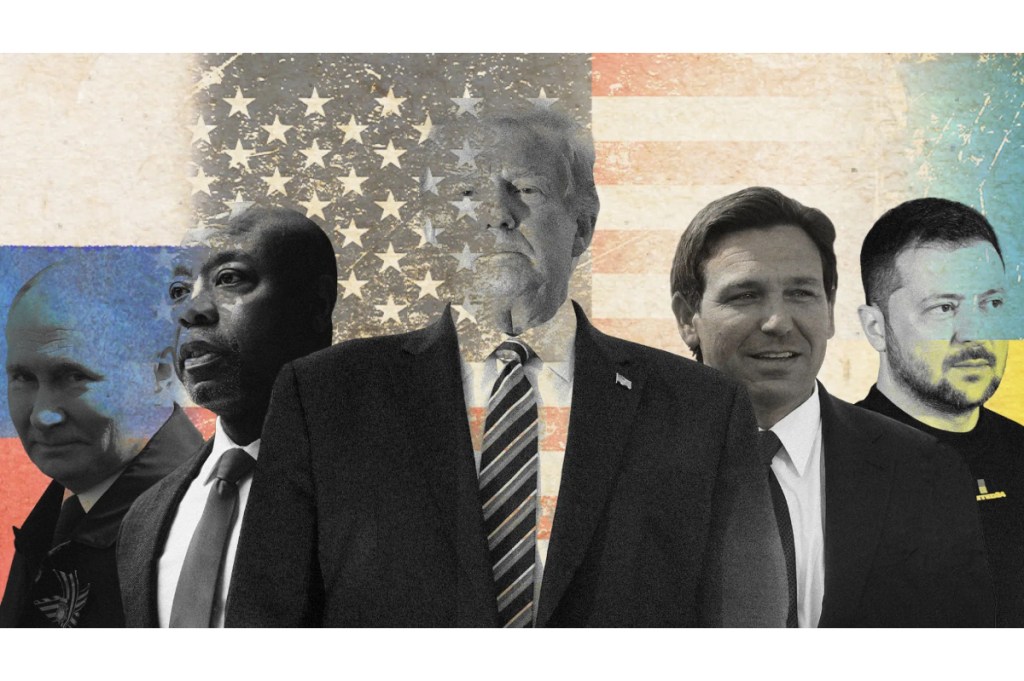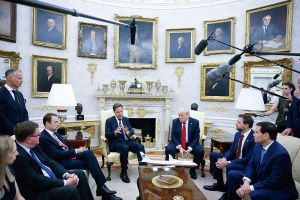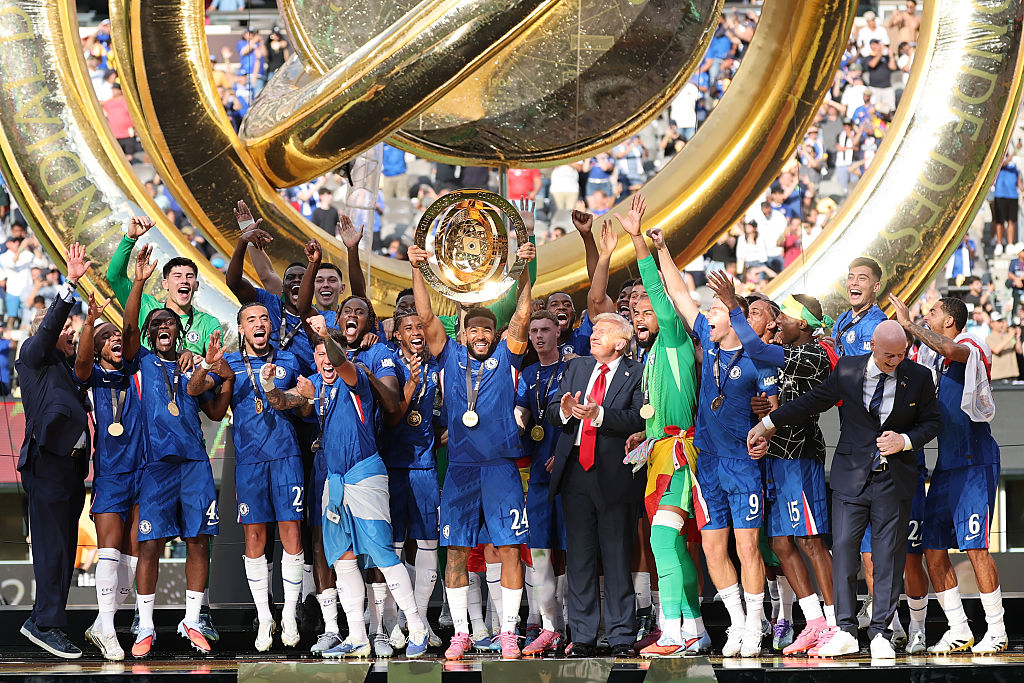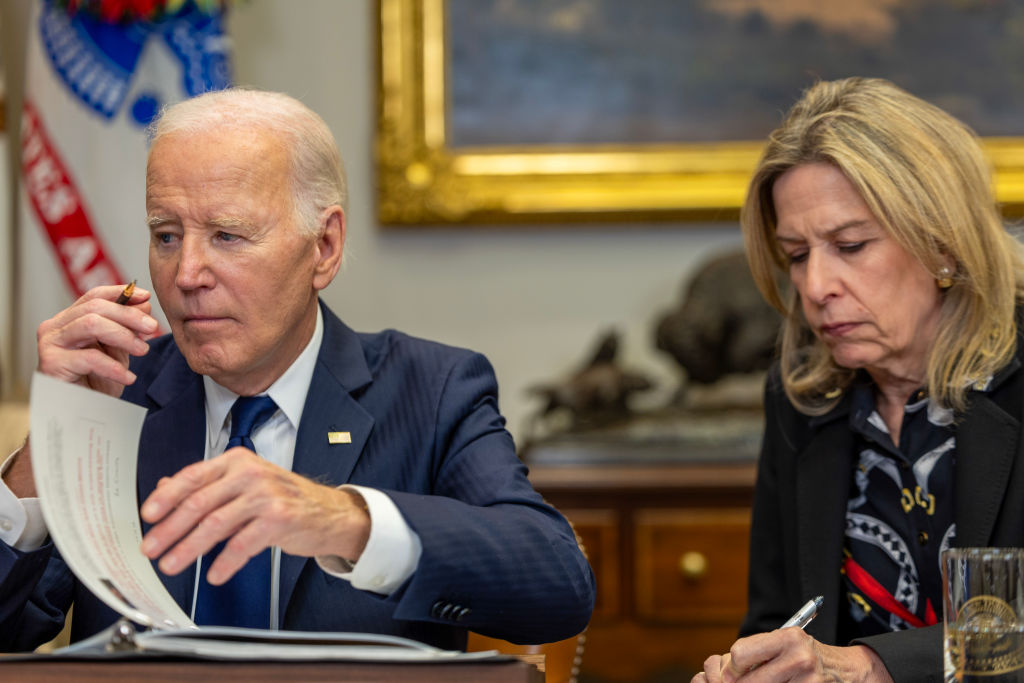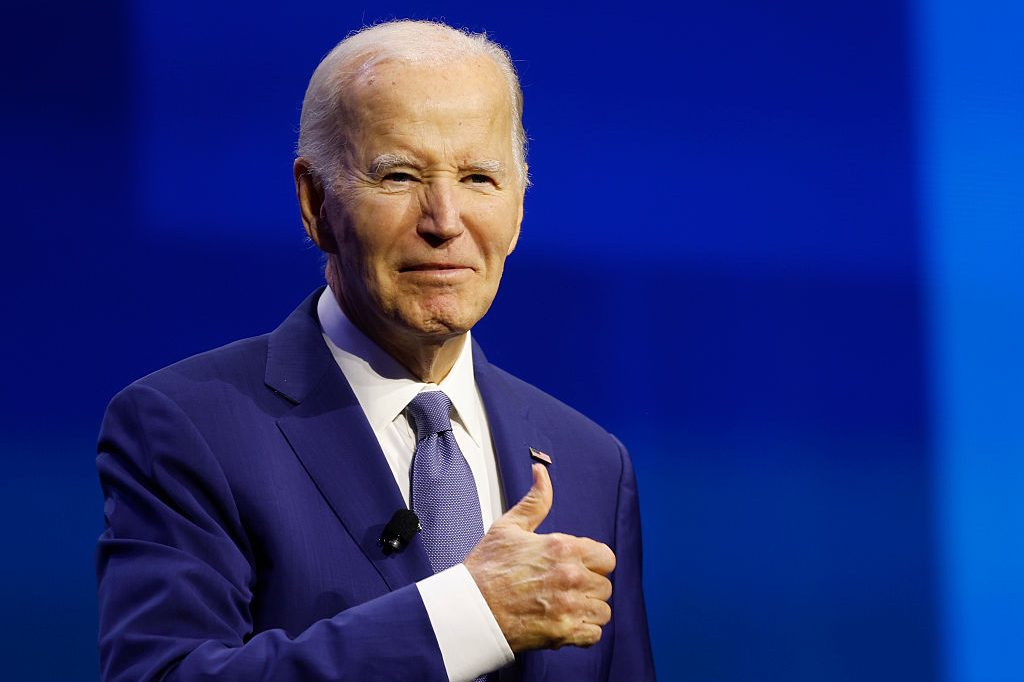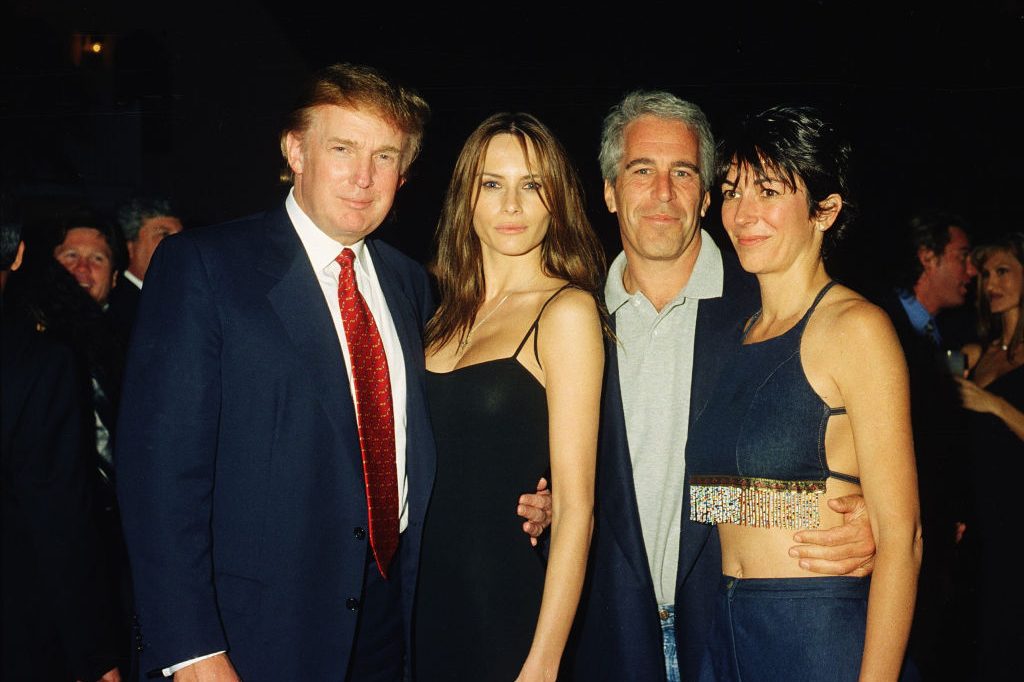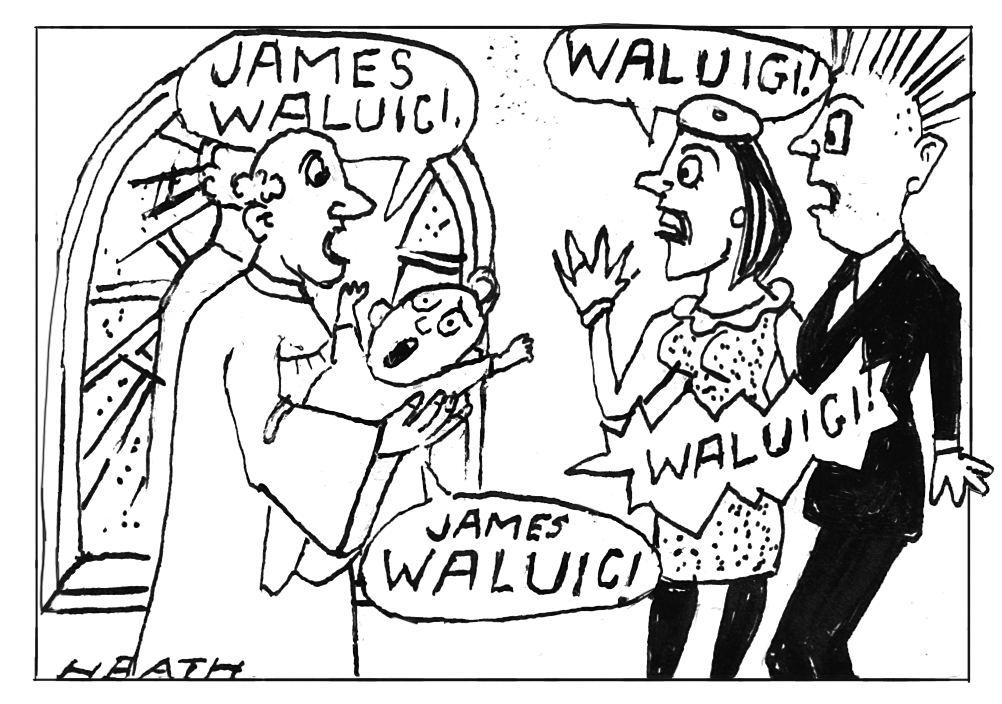Boris Johnson, Britain’s most sought-after Churchill impersonator, visited Texas on Monday to urge a group of rich right-wing Americans to never, never, never give in to Vladimir Putin. “I just urge you all to stick with it,” Agent Bojo told a private lunch of conservative politicians and donors in Dallas. “You are backing the right horse. Ukraine is going to win.”
Johnson wasn’t paid to speak at the lunch, though it’s worth noting that he only stopped over in Texas on the way to the SCALE Fintech conference in Las Vegas, where he is expected to receive a six-figure sum for talking about the future of innovation alongside Saudi Arabia’s ambassador to the US. Nobody said freedom was free.
The popularity of Trump’s give-peace-or-is-it-Putin-a-chance message has candidates scrambling
Johnson promised his Texan lunching companions that there is “every hope that the Ukrainians will be able to deliver a very substantial counterpunch this summer” and mooted the “prospect of a complete Russian military collapse.” It’s very important for Johnson and the Atlanticist pro-Ukraine lobby he represents to get that point across, especially as next year’s presidential election is starting to take shape.
Under the ambiguous leadership of President Joe Biden, the US has spent more than $70 billion helping Ukraine — far more than Europe. As the bills tot up, and as America’s military involvement shifts from covert to overt, a lot of Americans are beginning to wonder: is the war worth it?
Polls suggest that support for Ukraine is starting to ebb among all sections of the electorate, though Republicans are far more likely than Democrats to voice concern. A recent study found that 50 percent of Republicans think the current level of US military expenditure on Ukraine is “too much,” compared with just 13 percent of Democrats. Only 25 percent of Republicans think the US should “stay the course” for “as long as it takes,” whereas 51 percent of Democrats say the same.
Everybody knows who is most likely to win the Republican nomination and what he thinks. Donald Trump says that Putin would never have invaded Ukraine had he still been commander-in-chief. He adds that, if re-elected, he will make the Europeans pay more towards the war and settle the conflict within twenty-four hours. “I’ll meet with Putin,” he said at his now infamous CNN “town hall” appearance two weeks ago. “I’ll meet with Zelensky. They both have weaknesses and they both have strengths.”
Trump’s egomaniacal faith in his deal-making abilities amuses everyone. But NATO hawks are alarmed that, if victorious, he may prove himself right. To appease Russia, they believe, Trump would inevitably reward Putin’s aggression. That, in turn, would embolden Mad Bad Vlad to launch more wars in pursuit of his expansionist dreams.
No doubt Johnson made that case forcefully to the oil ’n’ gas tycoons on Monday. He’d have found them willing listeners, too, since the US hydrocarbon industry grew last year as the war stymied Russia and Ukraine’s natural-resource exports.
Persuading the American public is a different matter. There was a telling moment in that CNN town hall when the interviewer asked: “Can you say if you want Ukraine or Russia to win this war?” “I want everybody to stop dying,” Trump replied. “They’re dying, Russians and Ukrainians. I want them to stop dying.” The audience, in Goffstown, New Hampshire — a crucial first primary state in the Republican nomination process — broke into a loud ovation.
The popularity of Trump’s give-peace-or-is-it-Putin-a-chance message has other candidates scrambling. His most likely challenger, Florida governor Ron DeSantis, who finally announced his candidacy on Twitter this week, is more of a conventional Republican by instinct. That should make him more receptive to Johnsonian or “Special Relationship” appeals to be tough on Russia. In March, however, when pressed on the Ukraine question by the now fired Fox News host Tucker Carlson, DeSantis tilted Trumpian. “While the US has many vital national interests,” he said, “becoming further entangled in a territorial dispute between Ukraine and Russia is not one of them.”
DeSantis took that position to avoid alienating the anti-globalist Republican base. Yet it did nothing to boost his poll ratings, which declined throughout last month. That speaks to a mind-bending law of Republican campaign dynamics: Trump can say anything; other candidates can’t.
DeSantis may enjoy a publicity boost following his big news announcement on Twitter, but his lack of charisma is already troubling Republican strategists. Some power-players are looking past him and towards South Carolina senator Tim Scott, who announced on Monday that he is running and may soon overtake Nikki Haley as the Grand Old Party establishment’s preferred nominee. Asked about Ukraine this week, Scott hedged on the side of NATO-hawkery. “President Biden has done a terrible job explaining and articulating to the American people what is America’s vital, national interest in Ukraine,” he said. “From my perspective and from the American people’s perspective that answer is degrading the Russian military.
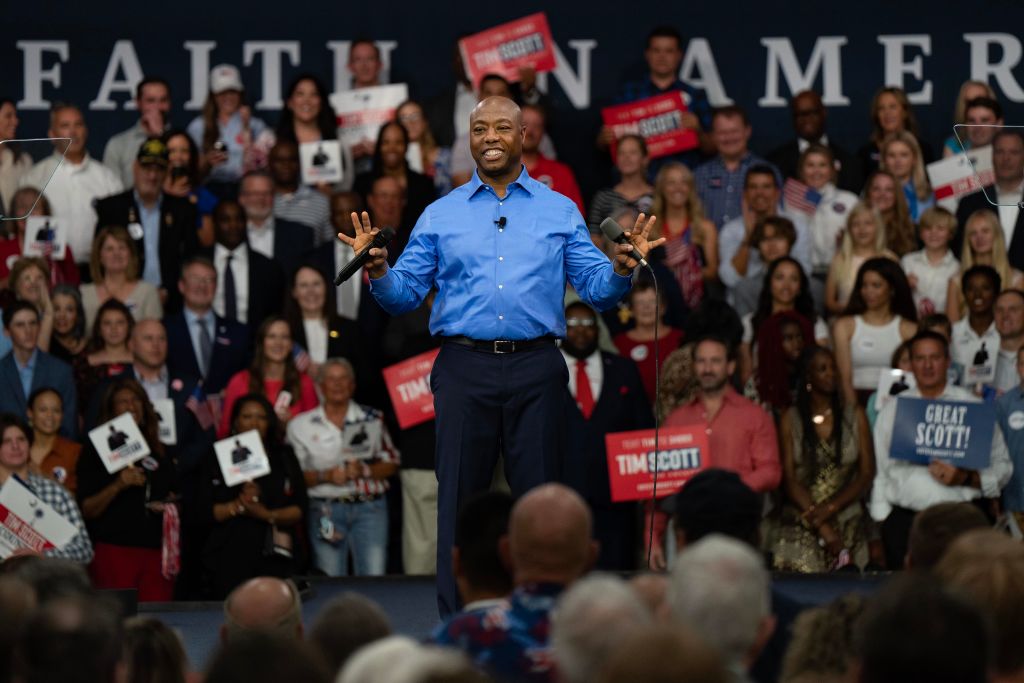
“The more we degrade the Russian military, the less likely there is to be an attack on our sovereign territory. And it protects our NATO partners. I think that we should be in Ukraine. I believe that the truth is simple, that degrading the Russian military is in America’s best interest. And the more we do that, the faster we get it done, the better off the entire world is.”
Such words are music to Atlanticist ears, but how might Scott’s argument play in the American heartlands? Trump’s spokesmen would point out that Russia’s spectacular failure to defeat Ukraine suggests that its armed forces are already more degraded than anybody realized, which ties into their man’s point that America probably doesn’t need to spend so much protecting Europe’s eastern flank through NATO. And, by continuing to push Putin towards a humiliating defeat, is America not in fact increasing the likelihood of the only conceivable (albeit unthinkable) kind of Russian attack on sovereign US territory: a nuclear one?
These questions are too difficult to answer in campaign slogans, and anyway US elections tend to be decided by matters domestic. Yet as the war approaches its second summer and America barrels towards 2024, the Ukraine conundrum will inevitably become a key talking point. Republican hawks and their NATO allies on the right will need to find a popular way of rebutting Trump. And the man to do that probably isn’t Agent Bojo.
This article was originally published in The Spectator’s UK magazine. Subscribe to the World edition here.



